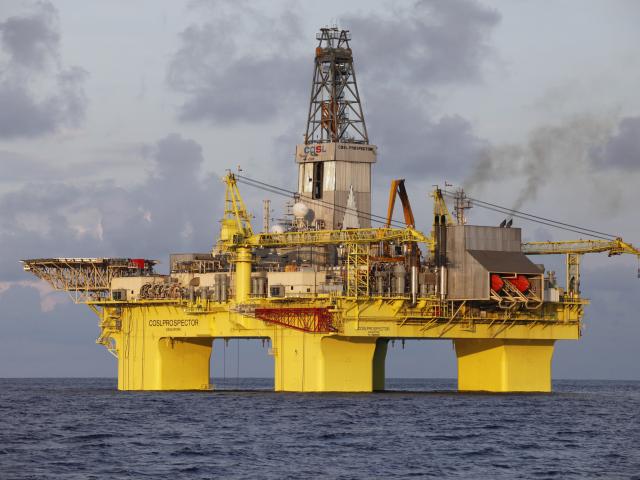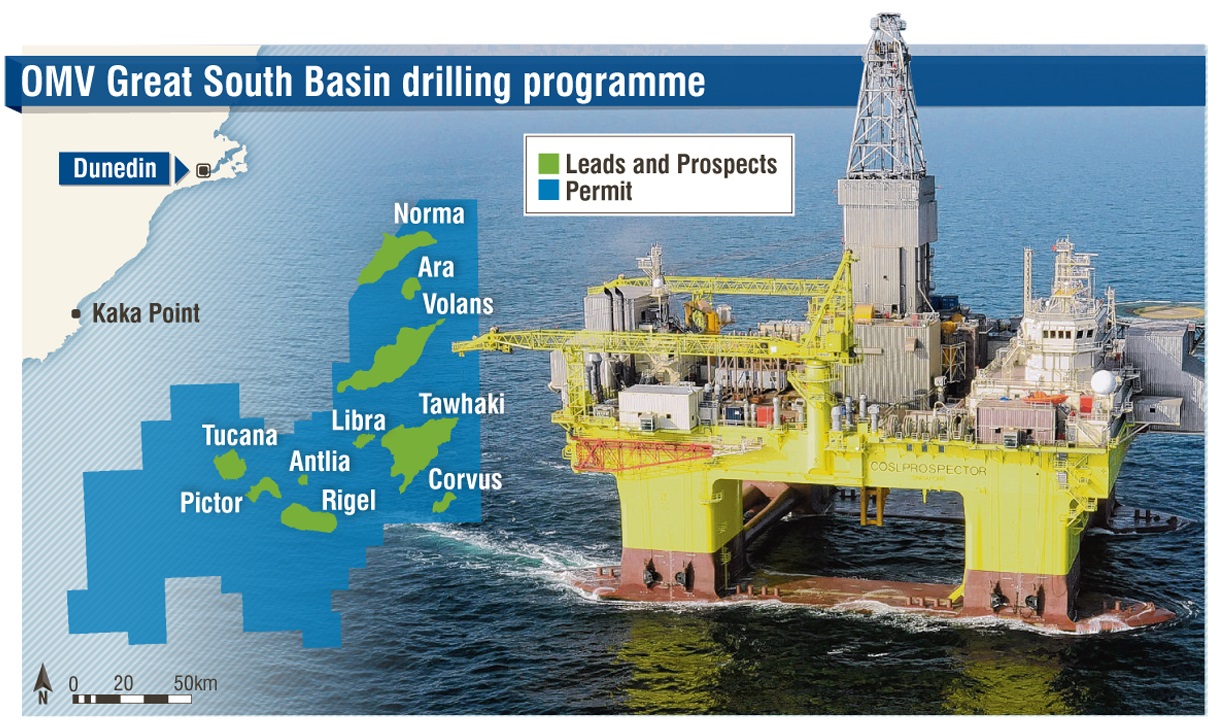

Decision-making Committee chairman Mark Farnsworth tried to rein in submitters from talking about the wider aspects of climate change.
The hearing is limited to the effects of a small potential discharge of harmful substances from the drill rig's deck drains, so wider environmental effects of gas and oil drilling are unable to be considered.
At one point, an OMV spokesman outlined that gas was legally considered a mineral, which opposing submitter Kathryn Nevell questioned during her submission.
From the crowd she asked if she could respond, but Mr Farnsworth said she could not.
Ms Nevell then stormed out, but later returned.
Mr Farnsworth reminded the room about the protocol of the hearing and that questions needed to be submitted in writing.

At several points, he stopped submitters opposed to the plans as they spoke about the wider impacts of climate change.
He said he was "very conscious of the frustration'' submitters were feeling at being unable to broaden the scope of the hearing, but the rules were set in legislation.
After several similar submissions, Mr Farnsworth said he would curtail any more covering the same information.
University of Otago marine botany senior lecturer Dr Linn Hoffmann presented evidence on the wider implications of ocean acidification and how the decrease in ocean pH, caused by the uptake of carbon dioxide, was destroying marine ecosystems.
Shortly into her presentation Mr Farnsworth cut it short, saying it did not relate to the specific consent.

Greenpeace climate campaigner Amanda Larsson said OMV had "a lot to answer for'' in terms of the impacts its commitment to oil and gas had on the environment.
On the subject of not being able to discuss climate change, there was "no other forum'' for the discussion, she said.
Other parts of the consent related to the company's drilling plans were non-notified and unable to be submitted on by the public and, therefore, the scope of the hearing was "inadequate'' and should be a :"great cause of concern for New Zealanders'', Ms Larsson said.

It was "outrageous'' that a corporation could "steal'' that resource, he said.
At this point he was cut off by Mr Farnsworth, who said he understood concerns over ownership of oil, but it was not something the committee could consider.
Through video link, coral ecologist Dr Lyndon DeVantier criticised the "disjointed'' process in which consents regarding OMV's plans were assessed.
"Those of us that are concerned about these issues are increasingly frustrated we are limited to talking about a cupful of harmful substances.''

"If my doctor gave me a substance... and he said he doesn't know what it is but it'd be fine, I'd be suspicious''.
Modelling used in the consent was mainly done in the Maui gas field in Taranaki and not comparable, he said.
However, when he moved into wider implications of the ocean acidification he was cut of by Mr Farnsworth, who questioned how it related to the discharge in question.
The hearing continues this afternoon and conclude tomorrow with OMV's closing arguments.
Comments
Here is a room, can you spot the elephant?
Sticking to protocols is not something that will help Nature. It is about essence.
The generations to come are to be deplored because of all the mess we created.
We best go back to horse and cart days, this will keep those ideological persons happy but they have to give up their plastic toothbrush.
For those of you that missed the elephant, here it is...
https://www.theguardian.com/environment/2019/jul/31/climate-crisis-alrea...












